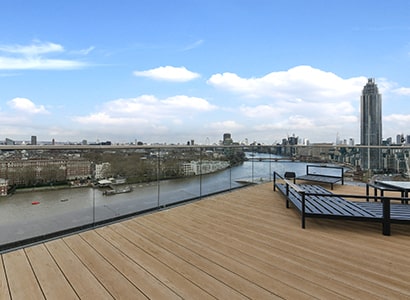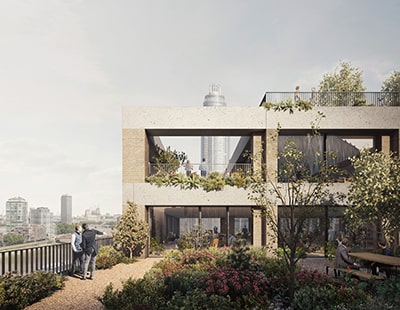As we are sub-contractors, we are six months behind the curve, and we won’t see the full impact until January/February 2021. Many of the programmes we are working on have been extended and to some extent this has taken the pressure off. Jobs are also easier to manage as we simply can’t get the same number of workers onto the jobs.
Will your experience coming through two recessions help Lee Marley Brickwork Ltd to bounce back and thrive in the new normal?
This is completely different, during the previous recessions we were concerned that things just wouldn’t recover, and it was a much more negative experience.
The pandemic has thrown a curve ball for the whole word, we are in the same boat as everyone else and our concerns have been about when we’re going back to work, not if. Personally, I feel this has been easier to handle than the last recession as there has been more support available with banks and the government really going all out to help.
Do you think the type of homes people will buy and invest in will be different post-pandemic?
Absolutely, I think there will be an increase in city-dwellers looking at what they can get for their money and moving out of town, especially for those that have been living in flats throughout lockdown.
They will be looking for more outdoor space and a garden and there will be less desire for city living. People are enjoying their home life and will be wanting to spend more on their house. I also think that many people are going to want to work from home more and will be looking for an office space within the home rather than a spare room.
We will see more investment in rental and social housing - a better quality of housing for everyone.
What are the main types of home you build? Homes for rent, homes to buy, homes for investment, or a combo of all three?
I would say that 25% of our business is private rental schemes, another 25% social housing and the largest part of the business 2-3-bedroom homes. We also work on student accommodation projects in big cities.
Did you face any challenges or pushback when founding your business so young? Did people take you seriously?
At first it felt like the old-school generation were looking down upon me, but luckily, I was confident and knew what I was doing, so I didn’t let this faze me. I knew I had to be resilient and not take it to heart. I also surrounded myself with older people to help give me the confidence I needed to take the business forward.
Sustainability has become a major buzzword in recent years - does it play a key part in your business?
Construction has jumped on sustainability, with all the environmental policy involved and having the ISO accreditations, we are always looking for new ways to use sustainable products and make sure our custody chain is up to date.
In the last couple of years, the construction industry has become a market leader in sustainability. Many of our customers want to be carbon neutral in the next five years and we will play a pivotal role in making this happen.
Tell us more about the project at Embassy Gardens Vauxhall...
We started this project in 2011 and are currently working on the third phase of four which we plan to complete in January. For us as a business this job is worth £20 million for the whole brick and scaffold package.
It’s one I really wanted to work on with the iconic glass sky pool and green glazed bricks which have helped get brickwork back in fashion.
We’ve been running a Women in Property series since last year - construction is one industry where females tend to be underrepresented generally, and particularly in senior positions. Is this something you’re aware of and what can be done to improve this?
The construction industry is very male-dominated, particularly in scaffolding and brickwork. However, some of our best surveyors are female and we are seeing more women interested in brickwork apprenticeships which is fantastic.
I’m hoping that in the next few years we will see more women entering this industry. We’ve found that women have a stronger presence and are often more able negotiators than their male counterparts.
The key for me is that the industry needs to encourage a lot more female teenagers into studying construction or surveying-related subjects, be it in university, apprenticeships or the new T Levels in order for a greater number of women to rise to the top of the industry.
If you had to advise an investor on one part of the residential property industry that will provide the best returns, what would it be?
I’m a true believer that you’ve got to want to live in a house you can sell. It’s got to be a home that you yourself would want to live in. Lots of companies go for mass but you’ve got to build something that people actually want.









.png)

.jpg)








Join the conversation
Be the first to comment (please use the comment box below)
Please login to comment